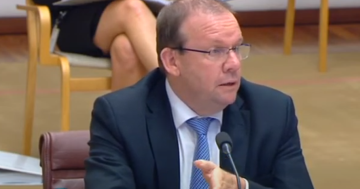
The parliamentary Joint Committee of Public Accounts and Audit has released a scathing report into some of the former coalition government’s grants programs. Photo: File.
The parliamentary Joint Committee of Public Accounts and Audit (JCPAA) has slammed some of the previous coalition government’s controversial Commonwealth grants programs, and has recommended some major changes to the way future grants programs are administered.
The recommendations come in a report tabled on Thursday (29 June).
On 8 September 2022, the JCPAA commenced an inquiry into the Commonwealth grants administration, focusing in particular on Auditor General reports into the coalition’s Commuter Carparks program, the Safer Communities Fund program, the operation of Grants Hubs, and the Building Better Regions Fund.
The Commuter Carparks grant program was a series of grants the federal government made to build carparks near suburban train stations, but it was later discovered that almost all of the projects were located in Liberal-held or marginal seats, and that many of the projects never went ahead.
The Safer Communities Fund program was established to address crime and anti-social behaviour by funding crime prevention initiatives such as CCTV and better lighting. But the Australian National Audit Office (ANAO) subsequently found that the program was only partly consistent with Commonwealth Grants Rules and Guidelines (CGRG), that applications were not assessed fully within the guidelines, and that funding decisions were not appropriately informed nor recorded.
The ANAO found that, while the Building Better Regions fund was well designed in some areas, there were deficiencies in others, that funding decisions were not appropriately informed and documented, and that the awards were only partly within the CGRGs.
The inquiry also looked at equity, decision-making and matters relating to the allocation of funding under the Urban Congestion Fund, the Regional Growth Fund, and the Modern Manufacturing Initiative, and considered possible changes to the CGRGs.
Four public hearings were conducted, and the inquiry received 24 submissions and 25 supplementary submissions from private individuals, government departments and agencies, think tanks and business groups.
The committee made six recommendations, which it says are aimed at strengthening the Commonwealth grants administration processes. These include:
- The implementation of an additional principle in the CGRGs that decision-makers must adhere to these guidelines.
- Clarification of how an election commitment is defined in the Department of Finance guide on Government grants.
- Best practice templates and checklists be developed by the Department of Finance to ensure consistent and comprehensive documentation throughout the grant process.
- A future ANAO audit of the process so the Finance Minister is informed of grant approvals against the recommendation of the awarding agency.
- Amendments to the CGRGs to provide that:
- Competitive, merit-based processes should be the default,
- Program guidelines must disclose the roles of stakeholders, including Parliamentarians,
- Decision-makers cannot choose from a pool of recommendations,
- Explicit reference is made to the Department of Finance’s guide on Government grants,
- Funding approvals against agency recommendations must be recorded and reported to the Minister for Finance, and
- ‘Other factors’ by which grants will be assessed should be fully transparent and appropriately evaluated and scored.
In the report’s foreword, Committee chair Julian Hill said there was “clear and concerning evidence of serial non-compliance” with the CGRGs, which he said were not overly complex or onerous, and that the letter and the spirit of rules were “routinely disregarded” by ministers and officials.
“Instead of transparently allocating public funds, the previous government pursued industrial scale rorting for blatantly partisan purposes,” he said.
“Rorting grants programs in this way not only wastes money, but also degraded public trust. The Committee was especially appalled to receive evidence that politicisation of regional grants programs corroded public trust to the point some councils stopped applying due to the belief they would never get a fair go.”
“Principles of fairness, a competitive process by default, transparency, and value for money were simply disregarded and records of critical decisions were not made or kept,” he added.
“It’s difficult to know what is more perplexing. That the previous government did what they did with billions of dollars of taxpayer dollars? Or that they still do not acknowledge that what they did was utterly wrong.”
The Committee’s report is available here.
Original Article published by Andrew McLaughlin on Riotact.












